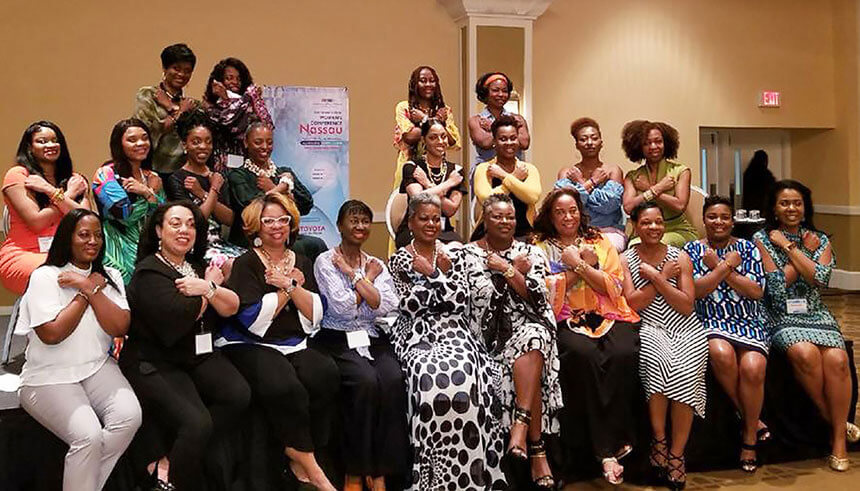Entrepreneur Insight
Top Stories from 2020: The Year in Review

A year-end recap of the most popular Reach Further stories
The COVID-19 pandemic that wreaked havoc on the global economy and disrupted every aspect of life was undoubtedly a defining feature of 2020. Stay-at-home orders and changing consumer behavior pressured businesses to find new ways to keep their operations running, forced many to pivot business models and put the rest into survival mode. Despite the economic hardships and challenging environment, many businesses found ways to stay afloat, adopted new technologies and turned their pivots into successful long-term value adds. The global pandemic has also impacted everyday life, forcing us to become even more reliant on technology and innovation. As this difficult year comes to an end, we look back at the themes of this past year and review the top Reach Further stories of 2020.
1. Business Continuity
The COVID-19 pandemic has affected the lives of people all over the world, with bans on travel, supply shortages and disruptions to work, and has caused some serious roadblocks for businesses across multiple industries. In order to mitigate current and future risks connected to COVID-19 or any other potential emergencies, businesses had to implement new strategies to ensure business continuity. Below are a few examples of how businesses had to navigate disruptions and shift into pandemic mode.
Since many businesses have been forced to close their physical locations and/or drastically limit their services due to the “stay-at-home” mandates, they’ve had to quickly shift from offline to online. By ramping up their digital presence, businesses could earn some much-needed revenue to keep their operations going and their staff employed during these uncertain times. Find out how small businesses can adopt online services to lessen the effects of the global pandemic and keep their business running at From Offline to Online: Leveraging Digital Commerce During COVID-19.
The COVID-19 pandemic has forced many businesses to reconfigure the way they accept payments, especially cash. The increased health concerns over touching surfaces and handling cash, mixed with social distancing and changing consumer shopping habits, led to the rise of contactless payments as a way to minimize touchpoints. Find out how contactless payments are redefining the future of transactions in a post-COVID world and how merchants can adapt to a new touchless payment landscape at Contactless Payments: Retail’s New Normal.
2. Pandemic Pivots
Many businesses have been forced to pivot in order to keep their operations running. Whether you’re a nonprofit organization, a restaurant, or a fitness company, many types of businesses have had to shift their business models in order to find new ways to serve their customers and stay operational during stay-at-home orders. Below are two stories of how companies of different sizes and industries have successfully pivoted during the pandemic.
Before Texas Governor Abbott had even issued stay-at-home orders back in March and forced restaurants to switch to takeout-and-delivery models, Peli Peli, a popular South African fine dining restaurant in Houston, was one of the first restaurants to take on takeout and delivery. The restaurant came up with a budget-friendly $10 boxed meal menu and successfully partnered with supermarket chain Kroger to sell its premade meals and reach a wider customer base. Learn more about how this Houston restaurant pivoted to a more affordable concept to cater to more customers during the pandemic at Pandemic Pivots: How Peli Peli Went from Fine Dining to Pocket-Friendly.
When the pandemic hit, it upended the plans of the International Black Women’s Public Policy Institute (IBWPPI), a nonprofit organization headquartered in Atlanta, Georgia, that focuses on human trafficking, health and wellness, economic security and education. The organization had to curtail a big annual membership drive, which was usually done through public gatherings. Despite the restrictions, IBWPPI found a new way to keep people engaged and initiated new programs to help people impacted by the outbreak. Learn more about how this nonprofit pivoted in order keep helping women in need at Pandemic Pivots: How a Black Women’s Nonprofit is Helping Women Around the World.
3. U.S.-China Business
To protect American jobs in the wake of the pandemic, the Trump administration made a series of moves earlier this year to block foreigners from seeking work in the United States for the remainder of the year, and tried to ban foreign students from entering the U.S. to study if their schools were going to hold classes remotely. These measures have reduced U.S. access to global talent at large and, looking ahead, the U.S. needs more openness to the world, not less. Learn more about what East West Bank CEO Dominic Ng has to say about how the U.S. must address the risks that come from foreign investment and restore its reputation as a hub for international talent while maintaining openness to the world at Dominic’s Take: Rebuilding the US Innovation Economy Requires Openness, Not Isolation.
4. Innovation
As efforts to curb global warming have gotten stronger, the renewable energy industry has kicked innovation into high gear. Among the many renewable energy investments happening around the world, one that is entering the U.S. spotlight is anaerobic digestion. Also known as biodigestion, anaerobic digestion provides a solution for both food waste management and clean energy generation, creating power 24 hours a day, seven days a week, from trash. Learn more about the advantages of turning food waste into energy and how California is addressing organic waste and clean energy, and providing opportunities for businesses, at Turning Food Waste into Renewable Energy, a Business Opportunity.
5. Community
The Huntington Library has recently acquired a collection of papers from the family of Gilbert, Florence, and Leslee See Leong, members of two of the earliest and most prominent Chinese American families in Los Angeles. The collection includes drawings by architect Gilbert Leong, whose designs helped shape the architecture of postwar Los Angeles and Chinatown. Leong was also a founder of East West Bank, now one of the largest independent banks headquartered in Southern California. Read more about the story behind this never-before-seen collection of papers that chronicle a little-known chapter of Chinese American history at Treasure Hunt: The Huntington Library Acquires Papers of Chinese American Family.
6. Art
East West Bank’s head of private banking and art aficionado, Agnes Lew, kicked off her artist interview series by interviewing Christina Quarles, a native Angeleno and contemporary artist featured on Gallery Platform LA, a new online gallery that reflects Los Angeles’ vibrant art community. With an art style that emphasizes contoured lines, dimensional perspectives and the dismantling of fixed subjectivity, Quarles draws much of her inspiration from her own daily experiences and personal background. Read the exclusive interview with this acclaimed contemporary artist at Agnes A-List: Artist Interview with Christina Quarles.
Sign up for the Reach Further Newsletter
We’ll keep you in the know about the latest US-Asia business news and trends.
Suscríbase al boletín Reach Further
Lo mantendremos informado sobre las últimas noticias y tendencias comerciales entre Estados Unidos y China.









